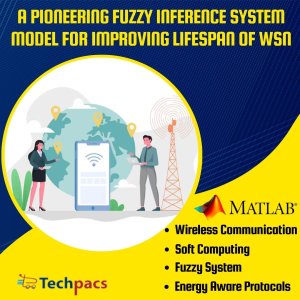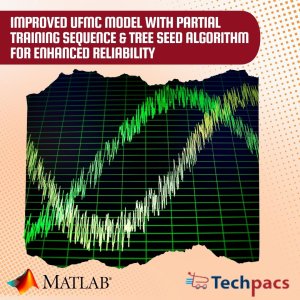Integrating Hybrid Optimization with Neural Network for Enhanced Software Failure Prediction in Cloud Computing
Problem Definition
Despite the progress made in software failure prediction systems for cloud systems, there are still numerous challenges that need to be addressed to improve the accuracy and effectiveness of such systems. The complexity and variability of cloud environments present a major obstacle, as they can introduce noise and uncertainty into the data, making it difficult to accurately predict failures. The dynamic nature of cloud systems further complicates the issue, as the behaviors and interactions of various components are constantly evolving, making it challenging to capture and model these changes. Traditional feature selection techniques also face limitations in identifying relevant features for prediction, leading to less effective models.
Furthermore, the integration of optimization algorithms to enhance feature selection has been explored as a potential solution.
However, these algorithms often suffer from slow convergence rates and can be prone to getting trapped in local minima, increasing the complexity and computational time of the model. To address these limitations, a new and more effective failure prediction model is needed that can overcome the challenges posed by the complexity, variability, and dynamic nature of cloud systems.
Objective
The objective of this project is to propose a novel approach for software failure prediction in cloud environments by combining Yellow Saddle Goat Fish (YSGA) and Grasshopper Optimization Algorithm (GOA) for feature selection. This approach aims to address the challenges posed by the complexity, variability, and dynamic nature of cloud systems by using a hybrid optimization technique to enhance the accuracy of failure prediction models. By integrating these optimization algorithms with an artificial neural network (NN) and utilizing a failure dataset from GitHub, the goal is to predict software failures more accurately and improve the performance of prediction models across different workloads. Ultimately, this approach seeks to overcome the limitations of traditional feature selection techniques and optimize the prediction model using a combination of complementary techniques for better outcomes in software failure prediction.
Proposed Work
In this project, we aim to address the challenges and limitations in software failure prediction systems for cloud environments by proposing a novel approach that combines two optimization algorithms, Yellow Saddle Goat Fish (YSGA) and Grasshopper Optimization Algorithm (GOA) for feature selection. These algorithms are integrated with an artificial neural network (NN) to improve the accuracy of failure prediction models. By using a hybrid optimization technique, we aim to enhance the feature selection process by exploring the search space more effectively and efficiently. This approach is intended to overcome the shortcomings of traditional single-algorithm techniques, such as slow convergence rates and tendency to get trapped in local minima, which can negatively impact the performance of prediction models.
The proposed work involves the use of a failure dataset obtained from GitHub, consisting of three different workloads (STO, NET, DEPL) and various input and target variables.
By separating the input and target variables and implementing feature selection and classification techniques, we aim to predict software failures more accurately. Neural networks are chosen for classification due to their ability to learn complex patterns and relationships in data, which is crucial for software failure prediction models. The combination of optimization algorithms and neural networks in our approach is expected to improve the purity value of the model across different workloads. This novel approach not only enhances the performance of failure prediction models but also adds a new layer of innovation by combining different techniques to exploit their complementary characteristics and achieve better outcomes in feature selection.
Application Area for Industry
This project can be applied in various industrial sectors such as IT, cloud computing, telecommunications, manufacturing, and finance. One of the key challenges faced by industries is the unpredictability of software failures in cloud systems, which can lead to downtime, loss of data, and decreased operational efficiency. By utilizing the proposed approach of combining hybrid optimization algorithms for feature selection with neural networks for classification, industries can enhance their software failure prediction systems. This will lead to proactive maintenance, reduced downtime, optimized resource allocation, and improved overall system performance.
The benefits of implementing these solutions in different industrial domains include improved accuracy in predicting software failures, better identification of relevant features for prediction, faster convergence rates, and reduced complexity in model development.
The use of hybrid optimization algorithms such as Yellow Saddle Goat Fish (YSGA) and Grasshopper Optimization algorithm (GOA) can help industries in selecting the most informative features for prediction, thus leading to more precise and efficient failure prediction models. By leveraging the capabilities of neural networks for classification, industries can enhance their decision-making processes, increase system reliability, and ultimately improve customer satisfaction.
Application Area for Academics
The proposed project can significantly enrich academic research, education, and training in the field of software failure prediction for cloud systems. By integrating hybrid optimization algorithms for feature selection with neural network classification, the project offers a novel and effective approach to address the challenges and limitations present in existing software failure prediction systems.
This research can have a wide range of applications in pursuing innovative research methods, simulations, and data analysis within educational settings. Researchers, MTech students, and PHD scholars can benefit from the code and literature of this project for their work in the field of cloud computing and software failure prediction. The use of hybrid optimization algorithms such as Yellow Saddle Goat Fish (YSGA) and Grasshopper Optimization algorithm (GOA) can enhance feature selection and improve the performance of prediction models, providing a valuable tool for researchers looking to optimize their predictive models.
The proposed approach, which combines feature selection techniques with neural network classification, can be applied to various research domains within the field of cloud computing. Researchers can explore the application of this methodology in different cloud environments and workloads, such as STO, NET, and DEPL, to improve the accuracy and efficiency of software failure prediction systems.
In conclusion, the project holds great potential to advance academic research, education, and training by offering a novel and effective approach to software failure prediction for cloud systems. With its relevance in optimizing prediction models and enhancing feature selection, the project can contribute to the development of innovative research methods and simulations within educational settings. The future scope of this work includes further exploration of hybrid optimization algorithms in software failure prediction and the application of neural networks in cloud computing environments.
Algorithms Used
In the proposed work, the Hybrid YSGA-GOA algorithm is used for feature selection and optimization. This hybrid approach combines the Yellow Saddle Goat Fish (YSGA) algorithm and the Grasshopper Optimization algorithm (GOA) to enhance the feature selection process. By leveraging the strengths of both algorithms, this approach aims to find an optimal or near-optimal solution more efficiently and effectively compared to traditional single-algorithm approaches. The hybrid optimization technique helps in exploring the search space more thoroughly and can lead to better feature selection outcomes, ultimately improving the overall performance of the model.
Additionally, Artificial Neural Network (ANN) is used for classification in the proposed work.
Neural networks are well-suited for classification tasks in software failure prediction models because of their ability to learn complex patterns and relationships in data. In this project, the ANN model is employed to identify failures in a cloud computing environment based on the input features selected through the hybrid optimization process. Neural networks can automatically learn relevant features from the input data during the training phase, making them a powerful tool for accurate prediction of software failures. By integrating the feature selection capabilities of the hybrid YSGA-GOA algorithm with the classification power of the ANN model, the proposed approach aims to improve the purity value and enhance the accuracy of failure prediction for different workloads.
Keywords
SEO-optimized keywords related to the project, Problem Definition, Proposed Work, Technologies Covered, Algorithms Used: software failures detection, cloud computing systems, YSGGOA, feature selection, neural network, machine learning, data preprocessing, anomaly detection, fault prediction, performance monitoring, cloud infrastructure, virtual machines, fault tolerance, cloud reliability, system resilience, software testing, software quality, artificial intelligence
SEO Tags
software failures detection, cloud computing systems, YSGGOA, feature selection, neural network, machine learning, data preprocessing, anomaly detection, fault prediction, performance monitoring, cloud infrastructure, virtual machines, fault tolerance, cloud reliability, system resilience, software testing, software quality, artificial intelligence
| Shipping Cost |
|
No reviews found!

















































No comments found for this product. Be the first to comment!